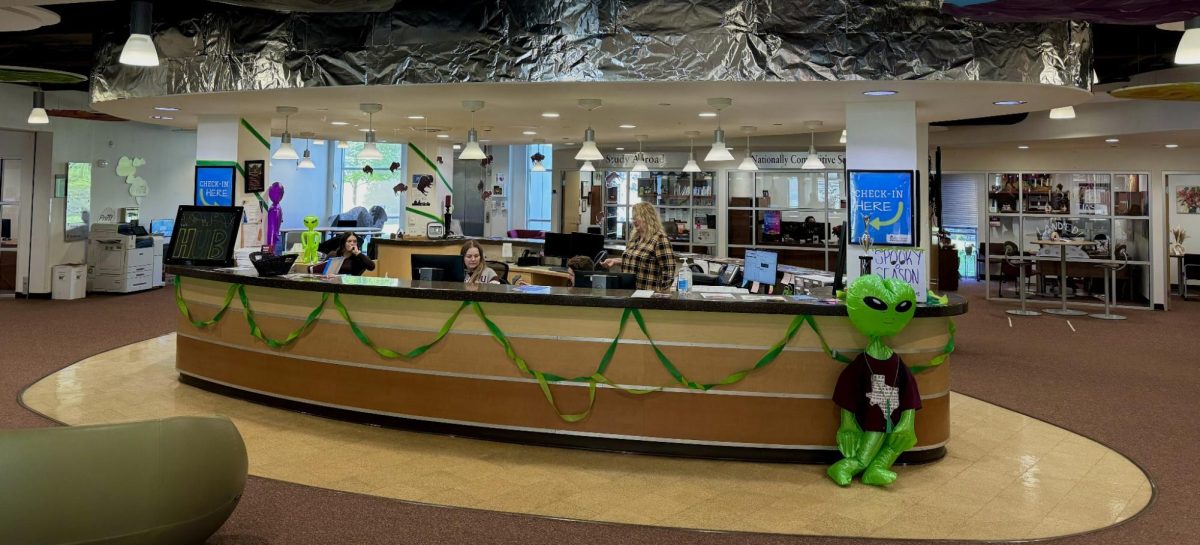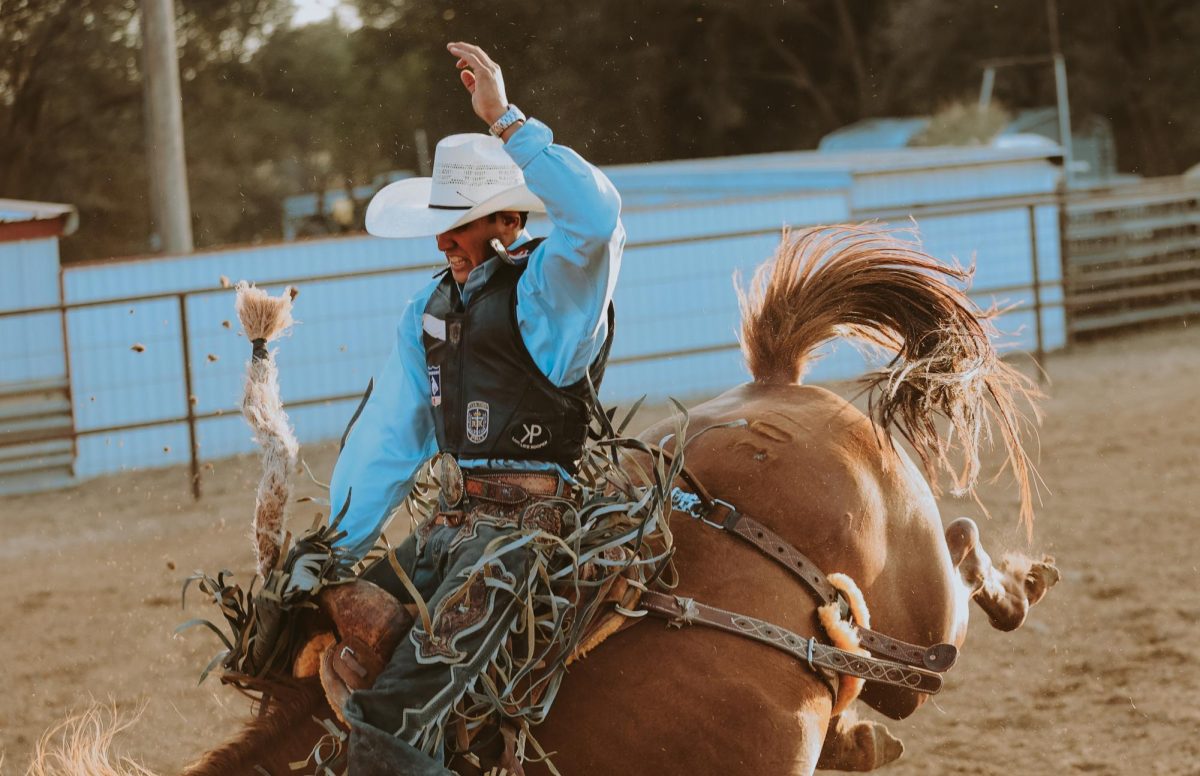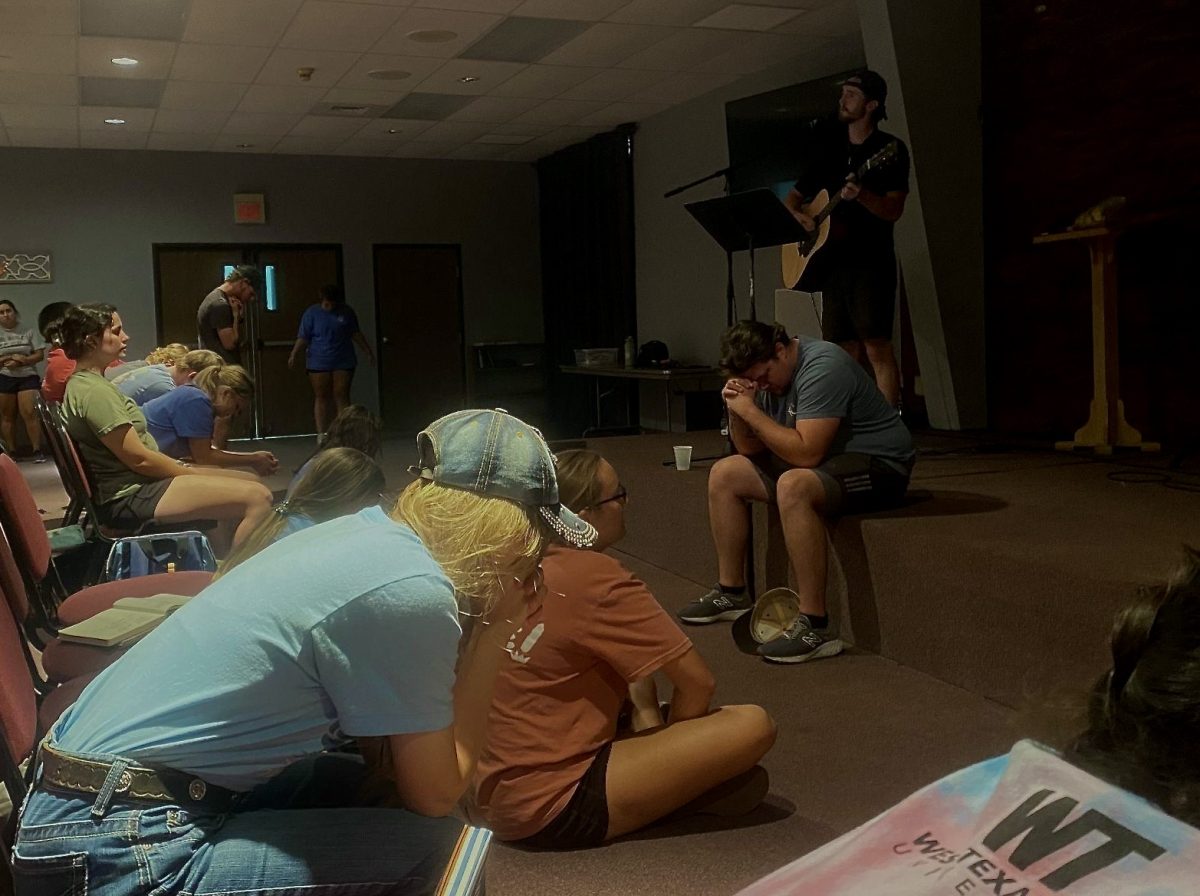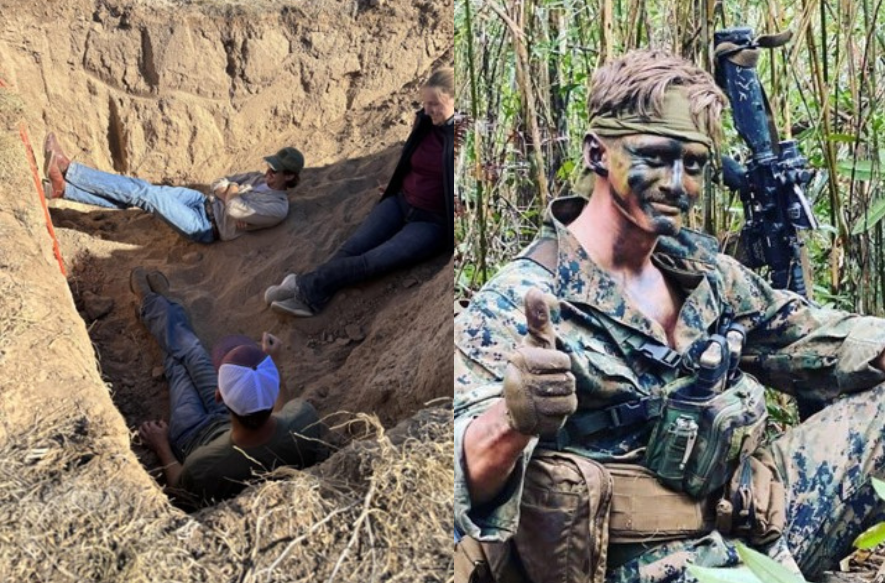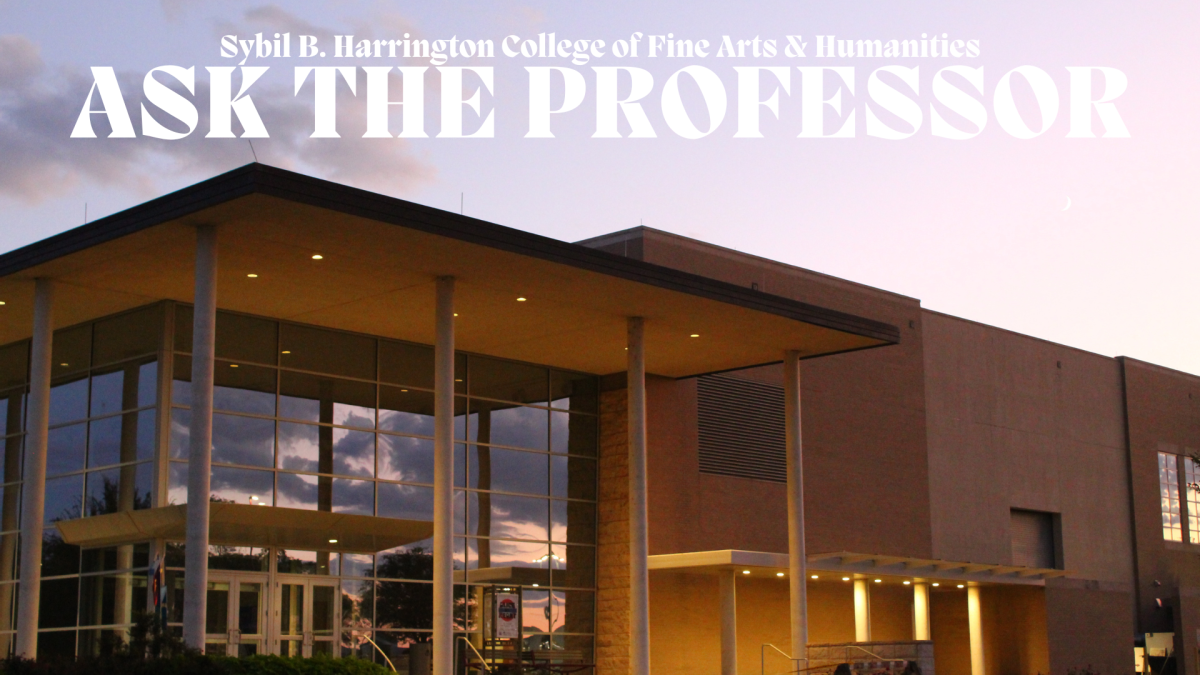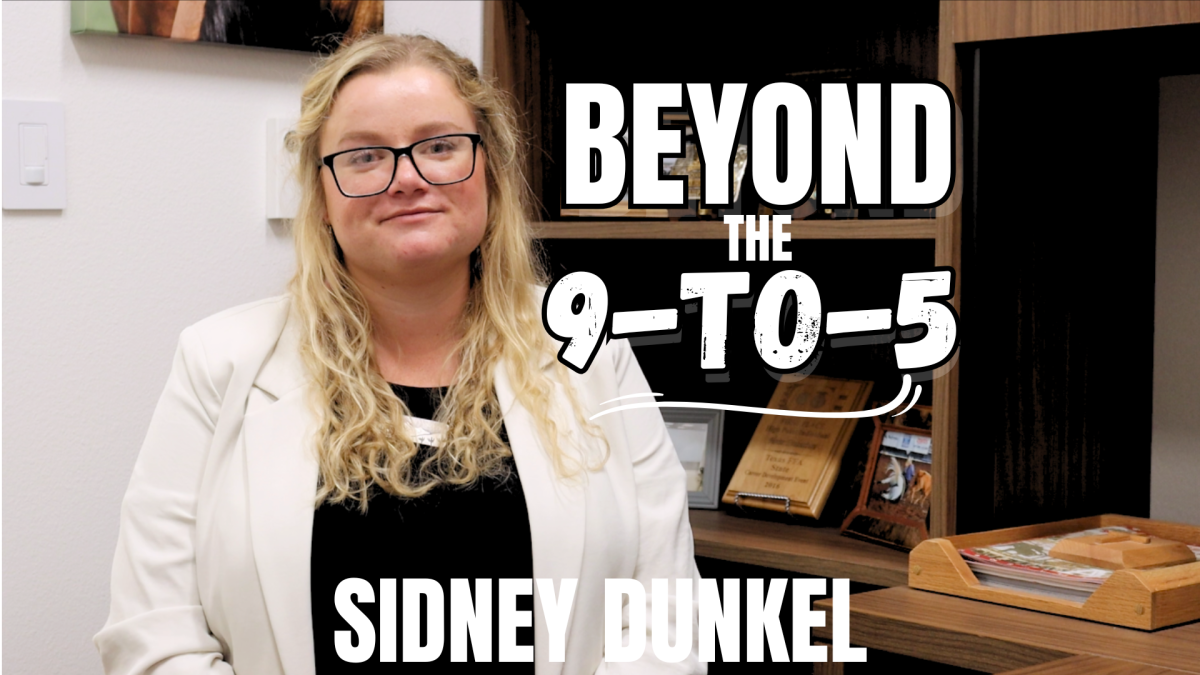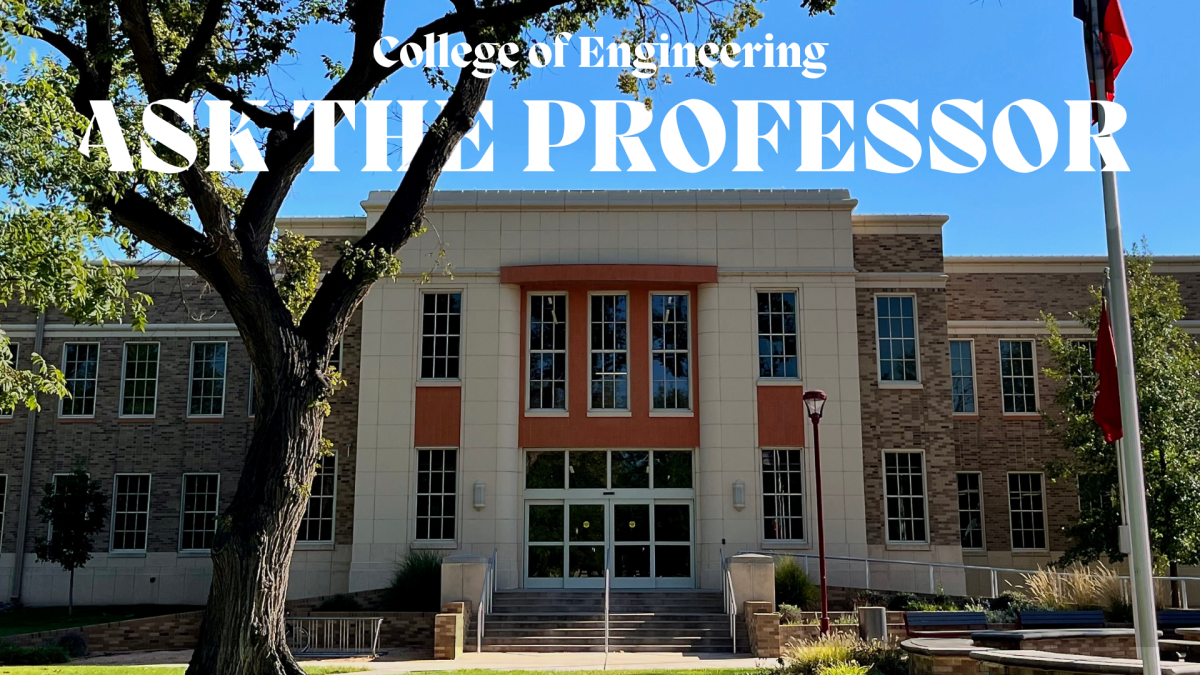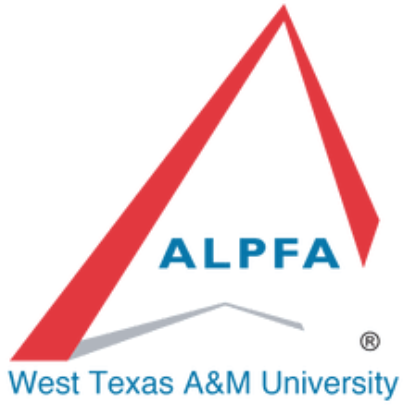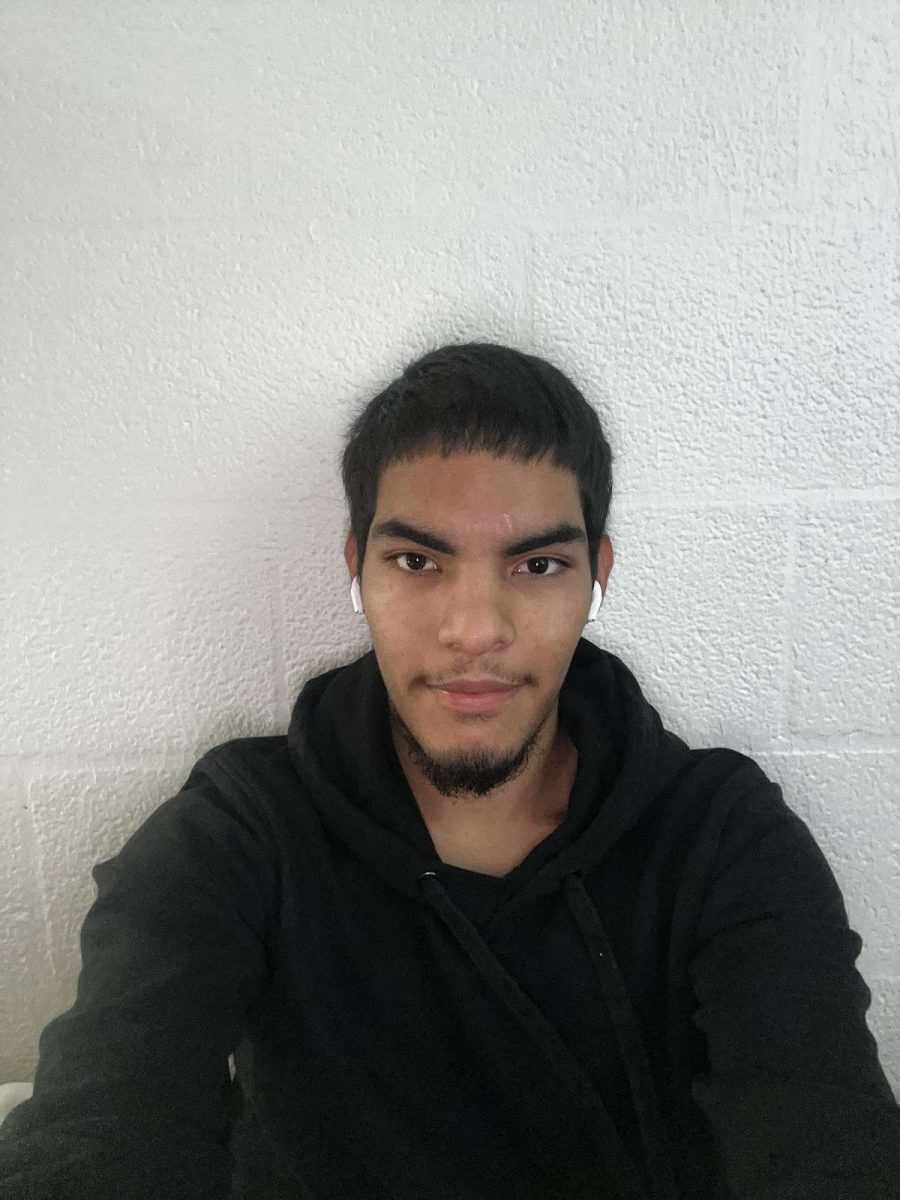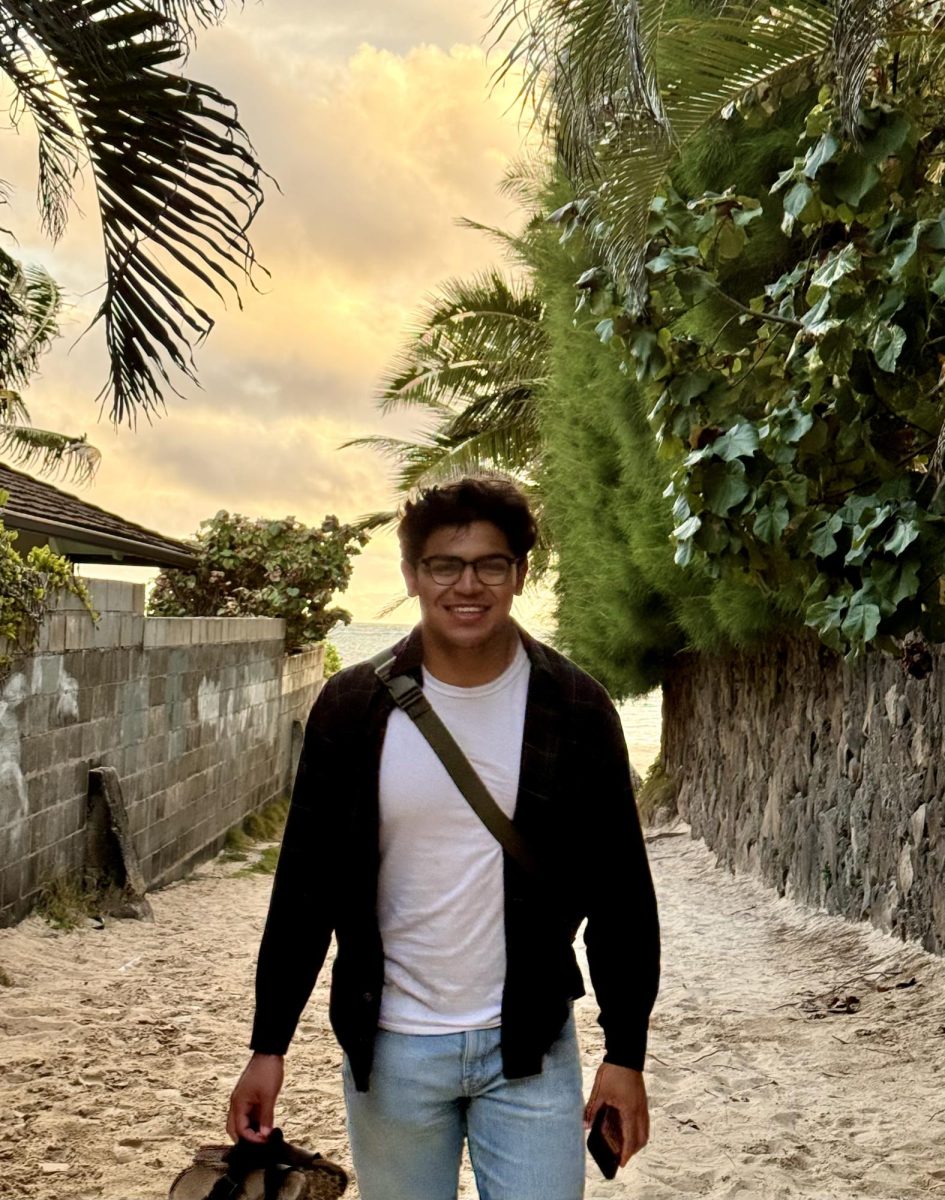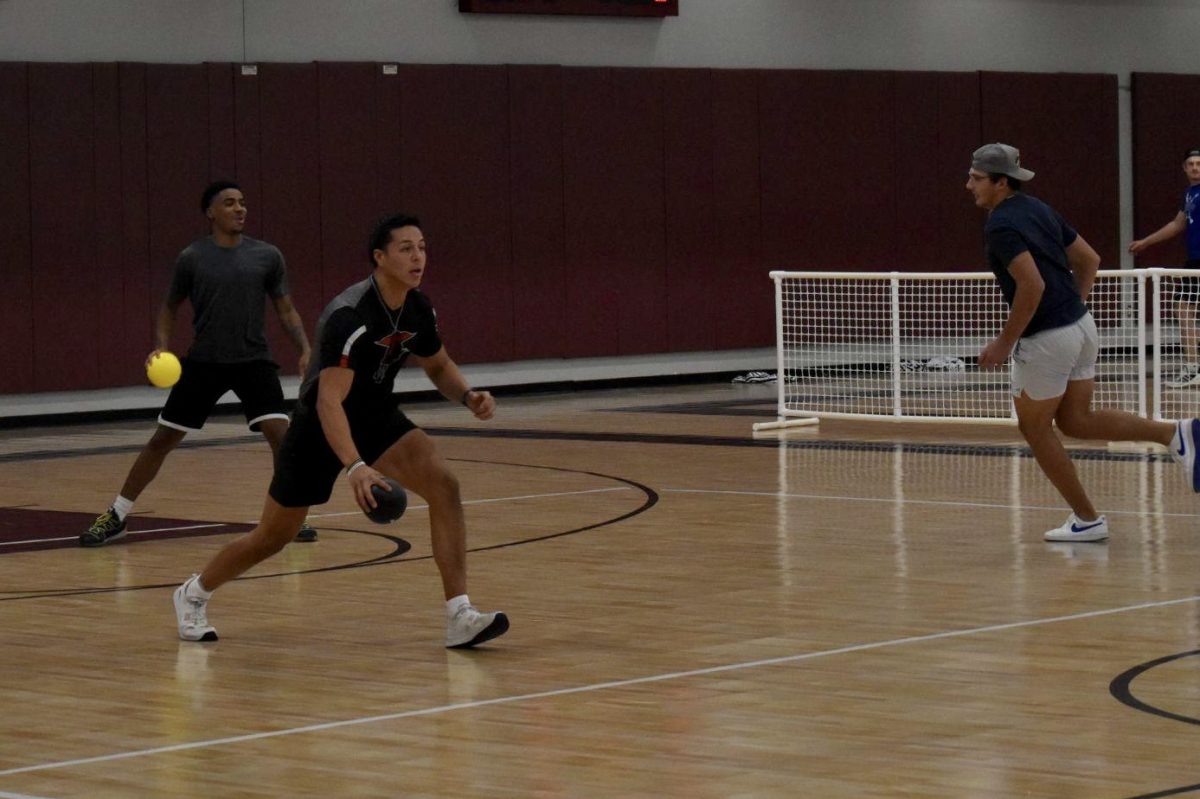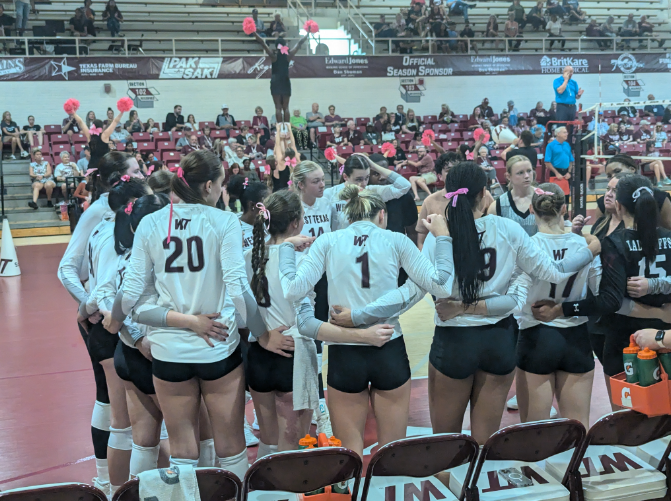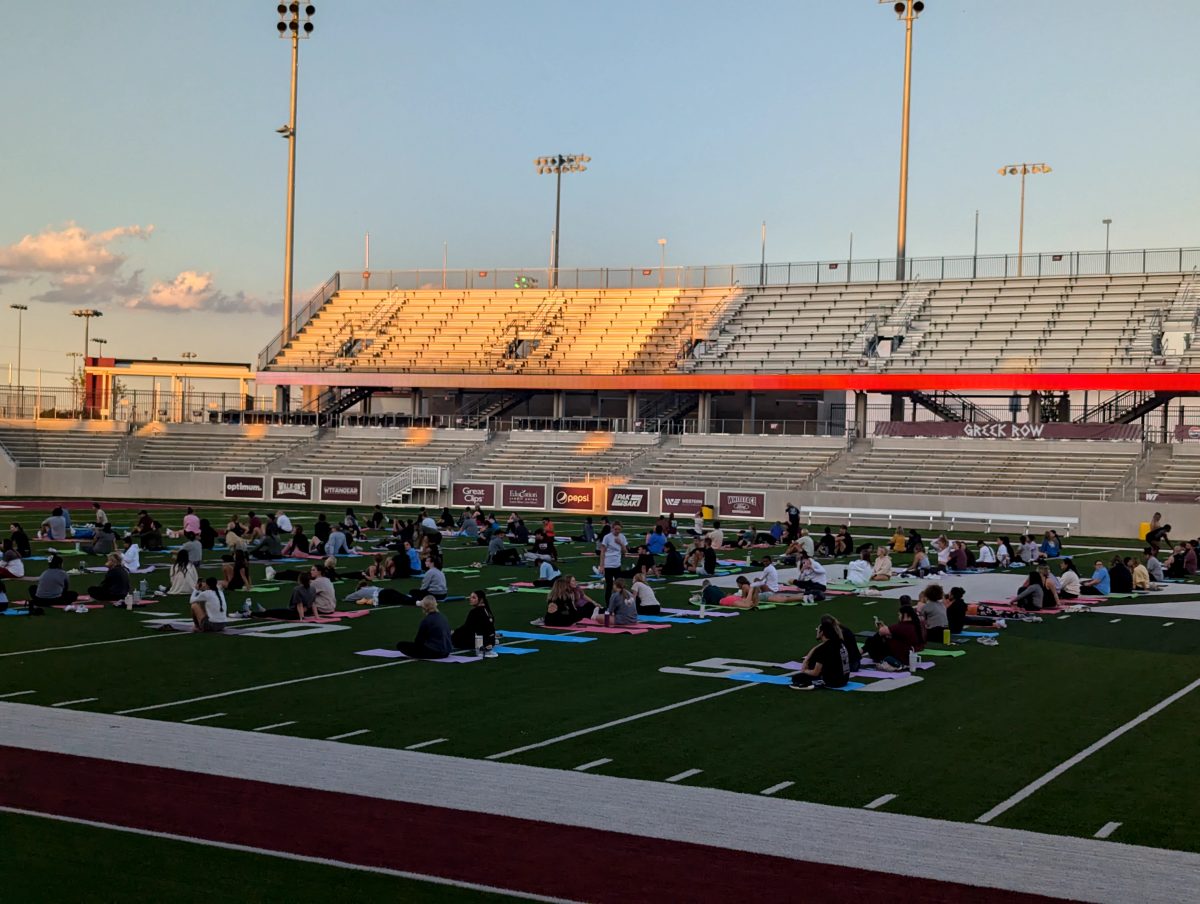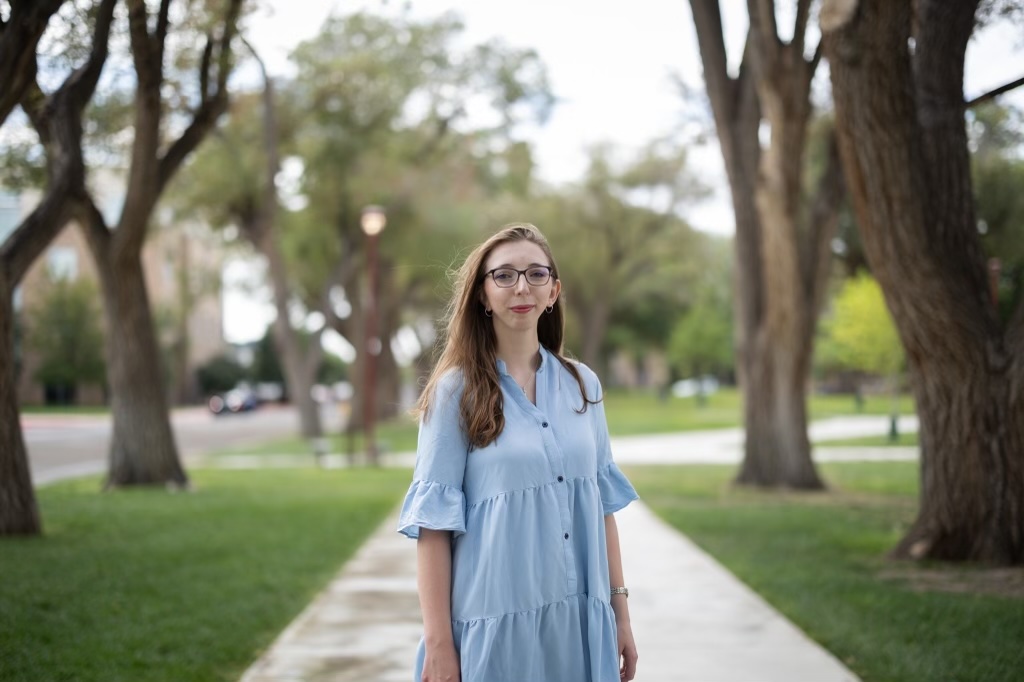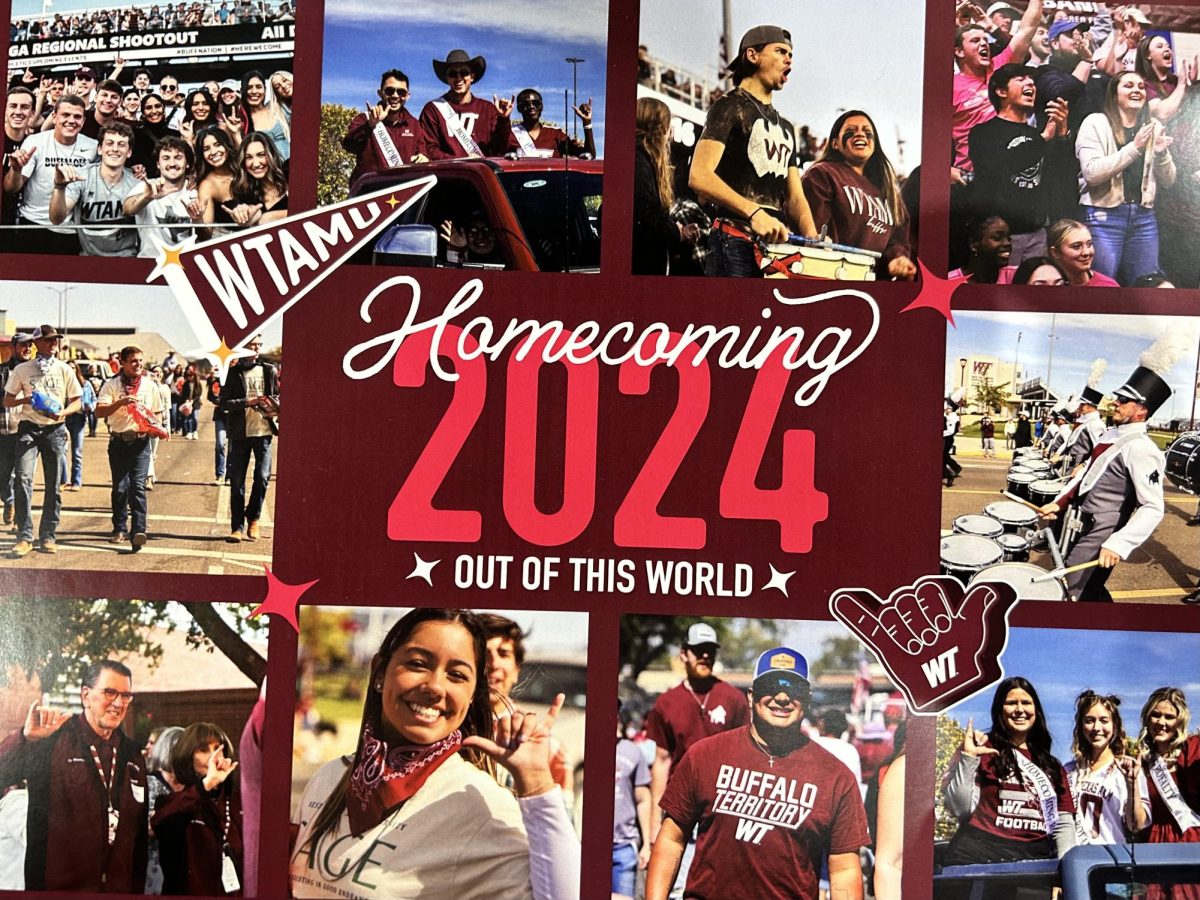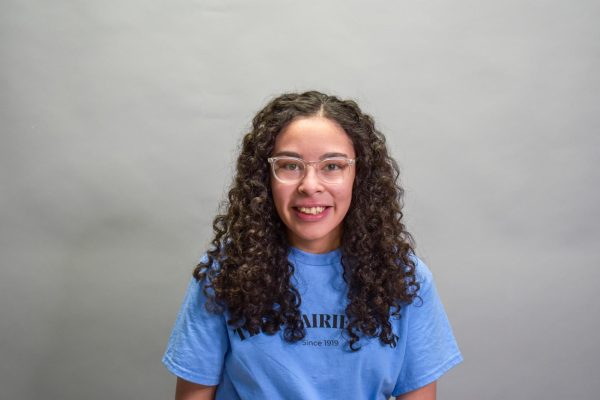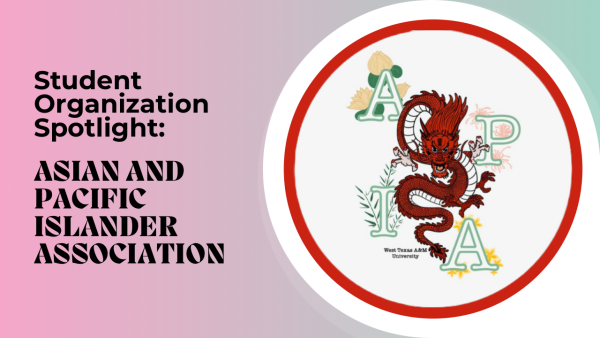
The Asian and Pacific Islander Association (APIA) is a student organization that aims to inform the Texas Panhandle community about Asian culture; fostering inclusivity for all individuals identifying as Asian or Pacific Islander. The organization’s president and founder, Michelle Truong, had a desire to create a community where Asian American students can authentically be themselves.
What is APIA?
MT: APIA stands for the Asian and Pacific Islander Association. And it was founded by me in August of 2022. And essentially, it is an organization that is meant to bring a community together for API students, and also for anyone interested in Eastern culture.
When and where do y’all meet?
MT: We meet on Wednesdays once a month, at 5:30 p.m., in one of the rooms in the JBK. Basement, usually the White Room.
How many people are in your organization?
MT: There are about 50 to 60 people in our organization.
Why is it important to have an organization like this on campus, especially one like WT?
MT: Whenever I came to WT, I was shocked by the lack of diversity among the student population. As someone who came from a diverse melting pot of cultures such as Houston, I realized after looking up the student demographics online, from the year 2021 to 2022, that 6% of WT students were made up by Asian Americans. And when I realized that there wasn’t an Asian organization on campus, I wanted to make a change in that. And that led to me opening APIA because I wanted students to have a community where they could flock together and see people with the same features, cultures, languages and honestly the same, like shared differences and also the same shared experiences as one another.
Your organization’s objective is to educate the panhandle community about Asian culture and be inclusive to all those identifying as an Asian or a Pacific Islander. Why is it important that people in the Texas Panhandle know about Asian culture?
MT: I think it’s important, especially within Amarillo, because there’s a huge Burmese population and Laos population. Essentially, there are refugees that come from Asia to the Texas refugee center, located in Amarillo. I believe it’s important for people to know about Asian culture because it’s important to learn about our differences within different cultures and our differences overall as human beings. And by learning about others’ experiences and their cultures and their beliefs, we’re able to grow as human beings and grow to be more like-minded and open-minded, and overall, more understanding of others and their perspectives.
Can you provide examples of the cultural holidays and collaboration events the organization hosts?
MT: One of our successful events that we did for the first time actually was our Mid-Autumn Festival that we did last semester. We had several participants come. I believe about 80 participants came. But 80 participants came; several of them were from Amarillo and weren’t affiliated with the University. Some of them were just members of the community. And there were a lot of families that came to celebrate with their children and with their loved ones, because we all shared this cultural holiday that was really important to us to represent good luck and good fortune and prosperity. And it brought the community together and was really touching for a lot of people because I was able to meet people within my community that spoke my language for the first time since I moved here. And it was really nice because we got to eat different cultural foods and celebrate together as a community and also as members of this university.
Why is it important for APIA to have a welcoming, all-inclusive environment for students of the Asian ethnicity?
MT: So, it’s really important for us to be inclusive towards everyone. It’s also noted that we don’t only accept students of Asian ethnicity, we accept students from different backgrounds as well. Especially if they’re interested in learning about Eastern Asian culture or just Eastern culture. But it’s very important for us to be inclusive and accepting because we need a space on campus where students can come together, like students of Asian [ethnicity], can come together and form a community, meet each other, form bonds, forge friendships and essentially just have a safe space for them to express themselves and share stories about their culture, their hometowns, their native languages, their upbringing, their experiences without feeling any sort of discrimination or microaggressions, or stereotypes that are associated with Asian Americans.
How can people stay in touch or contact or even get involved with APIA?
MT: APIA has an Instagram and that is @wtamuapia. If you follow us on there, that is where you can get all the updated events and news about our meetings and any volunteering or carpooling events that we do. And then we also have a GroupMe that is pretty active, where we post essentially the same information we post on Instagram.
Do y’all have any plans for the future?
MT: Yes, actually, we are currently planning on collaborating with WT K-Ppop, and several other organizations to do their [World Tour Night Club Event]. It was an event where WT K-Ppop club has a display of dancers dancing on stage. And they have a dance team essentially learning songs from K-pPop to dance on stage. And there are several booths open for different organizations to kind of fundraise and sell items, whether it’s concessions or do a photo booth. And then there’s also a little dance floor. It was held in Legacy Hall last year. We’re hoping to do something of a similar scale this year because last year, it was very successful for all the organizations involved. We had really good feedback and really good, like experiences from people who came to that event. We are also hoping to have a banquet at the end of the year for APIA students to come and get recognized.
What made you want to get involved with APIA?
MT: I wanted to get involved with APIA because I’m very passionate about having API students be represented on campus. Predominantly because I have experienced, not only here but throughout my life, prejudice against me for being an Asian American, especially when COVID hit and people were very discriminatory towards Asian Americans since COVID originated in China. And I am Chinese. And even when people didn’t know that about me, they would make inferences about who I was based on my appearance and the language I spoke. I’ve had people tell me that I was talking about them when I was speaking to my mom in my native tongue of Cantonese, on the phone. And I’ve had people tell me to go back to my country and people telling me that the U.S. doesn’t need more immigrants and that was shocking to me because they didn’t know anything about me. They passed me in passing by and they made these inferences about me based on how I looked and based on my features.
I tend to be the only Asian American within classes that I attend, and I tend to be one of the few Asian Americans I would spot in a common area such as the JBK. And as I talked to other students that I befriended that were of Asian ethnicity, I realized this is a shared experience among us. And I wanted us to have a community where we could honestly just feel like we can be ourselves and talk to someone who understands the upbringing that Asian Americans have, that our parents are so strict on us to get the American Dream and that sometimes we have to learn another language or struggle with not knowing our native language. It’s really great to have conversations with people in your community, especially in your ethnic community, and cultural community, about how your culture impacts you and the way you see yourself, the relationship you have with your family, that the relationship that you have with yourself, and how you hold yourself to a certain standard because of that culture.
For example, with me, my family were refugees from Vietnam. And when they came here, they were determined to make sure that their children had the best opportunities possible in the United States. And because of that, I grew up only knowing that I needed to pursue the American Dream. And my mother expected me to be a lawyer, a doctor, a cancer -researcher, a cancer- curer, a businesswoman and everything all at once, and simultaneously juggle everything in my life at once, five careers in one hand, essentially. And whenever I get to talk about this cultural expectation that our parents have for us to obtain the American Dream and to be constantly ambitious, and the cultural differences we have where our families and our culture does not emphasize mental and emotional health or behavioral health, generational trauma, these topics are very good to talk about with people in my community, because you feel, at least for me, I feel heard, I feel seen, I feel understood by people that grew up with the same experiences as me.
What is APIA doing now to try and get itstheir name out there and make sure that everyone knows that it’s an organization on campus?
MT: We are trying to get involved with the community. So one way we’re trying to get our name out there is by working with nonprofits and food pantries, and also businesses throughout Canyon and Amarillo. And so something that we’re in the process of doing. In addition to that we are trying to be present at every [Organization Fair] and [New Student Organization] and [Transfer Student Organization] at the uUniversity and also through word of mouth. We try to advertise our meetings and our events on the screens in the JBK and on social media and in GroupMe and just through our members in general.
Is there anything else you’d like to share about your organization?
MT: I want to emphasize the APIA is welcoming to every student, not just students that are of Asian ethnicity. I often find that students who are interested in Eastern culture or Asian culture tend to shy away from joining our organization or shy away from our tables at [New Student Organizations] or at [Organization Fairs] simply because they don’t identify as an Asian American. And I want to emphasize that you don’t have to be Asian American to join our organization. We accept students of all different backgrounds of all different walks of life. And we are simply a community where people can come and feel safe. And we want to make sure that students have a safe place on campus within our organization too.



